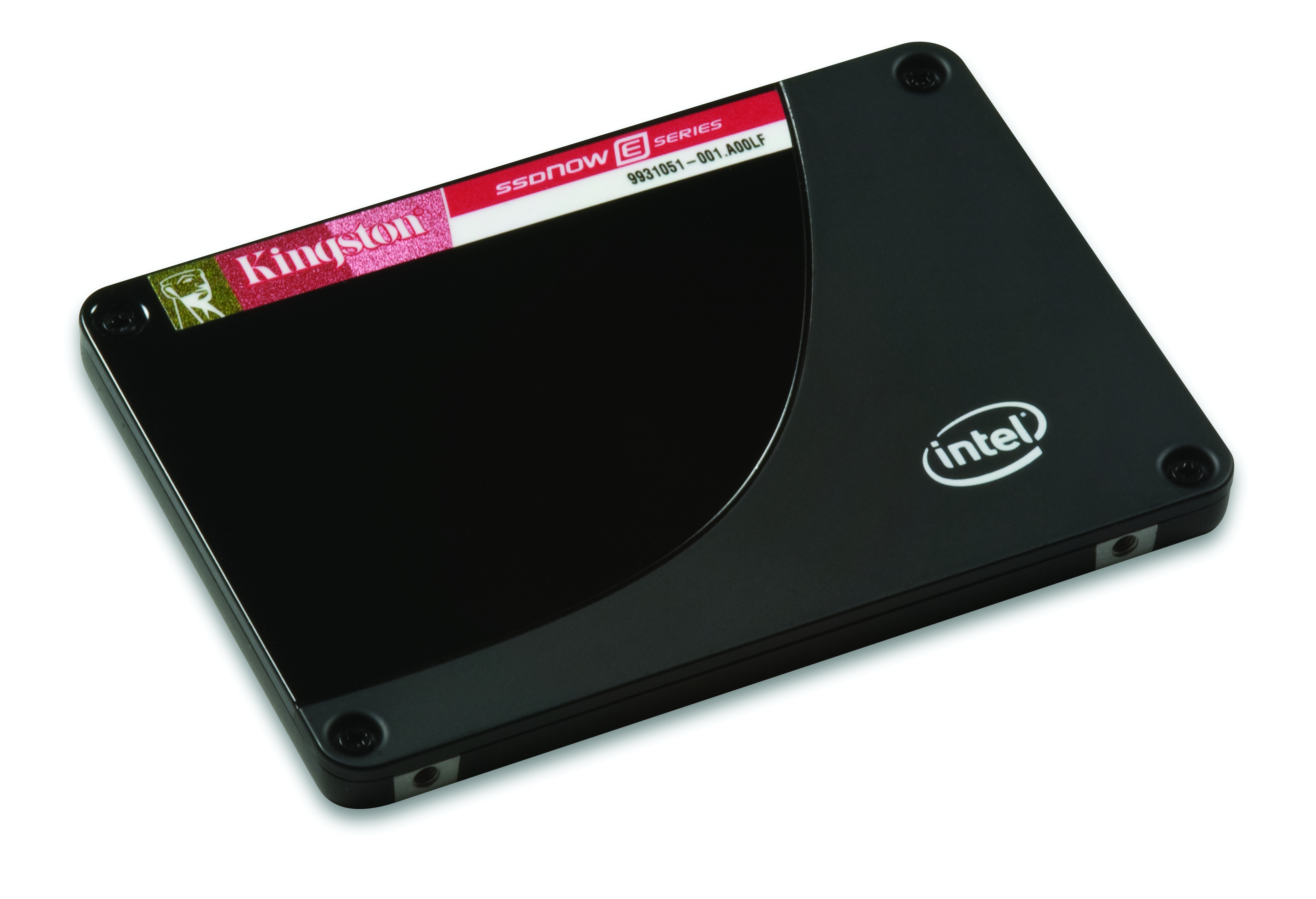Kingston Joins SSD Fray With Intel Drives
Get Tom's Hardware's best news and in-depth reviews, straight to your inbox.
You are now subscribed
Your newsletter sign-up was successful
Kingston is a name that most consumers will associate with the mainstream-level of memory products the company offers through retail chains. Store shelves are often stocked with Kingston desktop and notebook RAM and USB flash drives. Next up for the company are solid-state drives (SSD), thanks to Intel’s contribution.
Now shipping the first two offerings from Kingston’s new SSDNow E Series and SSDNow M Series, with the former being aimed at the enterprise server environment while the latter is for the performance-oriented notebook PC. Both are based off Intel’s SSD design.
"Intel has developed the fastest line of SSD products in the world. Kingston's performance analyses of these drives are off the charts, so we are extremely pleased to be able to offer our customers the benefits of this award-winning line from Intel, backed by the service of Kingston," said Mark Leathem, director of flash business development at Kingston.
The SSDNow E Series 32 GB gives up capacity for speed with 250 MB/sec. read, 170 MB/sec. write, while the SSDNow M Series 80 GB goes on the other side of the equation with 250 MB/sec. read, 70 MB/sec. write.
The specification and naming convention of the E Series and M Series appear to match up with the Intel X25-E and X25-M, which we’ve found in our own tests to be exceptionally fast.
Kingston did not provide pricing details, but we’re expecting these to be among the more expensive of SSD range.
Get Tom's Hardware's best news and in-depth reviews, straight to your inbox.
-
zodiacfml the company thinks their brand differentiates from intel, if you read the bold first paragraph in the article.Reply
i guess they're right, they might sell ssd drives as much as intel can.
Blessedmanso why would i buy from them when i can just buy an intel ssd? -
I guess this means that Intel doesn't have enough Flash production capacity to flood the market with those drives - and I they'd love to have more impact on HDD sales. This way they outsource production and support, but still get money from licensing. This should mean higher availability and maybe even lower prices of those drives, though I wouldn't count on the latter in short term.Reply
-
apache_lives ummmmmmmm there building these drives from the ground up, kingston only badges it, its still 100% intelReply
and nice one guys, my AMD fanboy joke gets me -3? its a joke, you know those things you laugh at? oh right AMD's fanies dont get it, heh.... Idiots. -
Kary Wouldn't a standard HDD with 4 - 250GB platters storing the data at different positions on each of the platters (the 1st quarter of the data store on the 1st quarter of platter 1... 2nd quarter of platter 2... 3rd platter of platter 3.......) and a gigabyte of cache be cheaper and about as fast as a SSD drive? (and with the same write penalty)Reply
Admittedly, power consumption would be about the same and you would want to get a little fancier with the data placement, but...for $200 vs $500 it might be a nice trade off :)
(yes, I know...and this is why I don't design HDD for a living) -
apache_lives KaryWouldn't a standard HDD with 4 - 250GB platters storing the data at different positions on each of the platters (the 1st quarter of the data store on the 1st quarter of platter 1... 2nd quarter of platter 2... 3rd platter of platter 3.......) and a gigabyte of cache be cheaper and about as fast as a SSD drive? (and with the same write penalty)Admittedly, power consumption would be about the same and you would want to get a little fancier with the data placement, but...for $200 vs $500 it might be a nice trade off (yes, I know...and this is why I don't design HDD for a living)Reply
Yeah unfortunatly its not like that, these SSD's have seek times below 0.01ms or less vs the average standard hdd with 11ms seek times - loading of apps is monstrously different etc because of seek time performance keeping that transfer speed up there.

